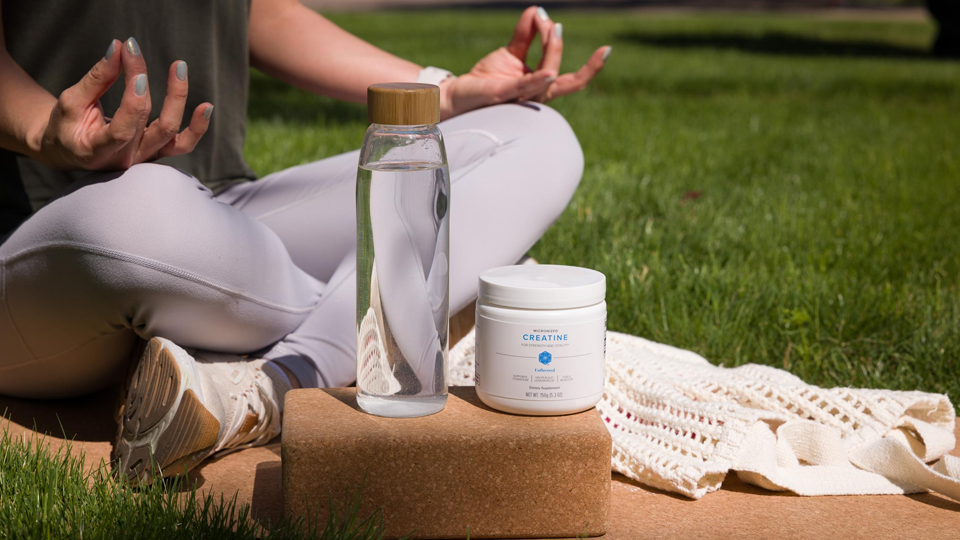If skeletal muscle is the organ of movement, then muscle flexibility is its base for function. Without range of movement (as athletes know too well) strength and power amount to very little. Lack of flexibility also leads to muscle stiffness and soreness.
Stretching, massage, and special exercises do improve range of movement, but an underappreciated part of any flexibility program is nutrition.
A lot of nutrients that are needed to maintain muscle. In addition, about 15 percent of skeletal muscle is made up of collagen and elastin, the connective tissue that encases individual muscles.
This connective tissue is called fascia that wraps up muscle fibers in a sheath to hold them together, forming muscle groups, and providing lubrication for their movement. These sheaths also form into dense cords or tendons at the ends of muscles that connect to bone allowing for range of movement.
While the repair and growth of muscle itself requires specific nutrients, such as amino acids from protein, so do these connective tissues that surround those muscles (1). The level of strength and flexibility in these connective tissues can determine how well muscles function, so any flexibility program should adopt specific nutrition for connective muscle tissue.
Studying Flexibility Nutrition
Most recently, researchers at Skidmore College found an intriguing link between nutrition and muscle flexibility when it was included as a measurement in a study on athletic men that involved nutritional products from Isagenix (2).
All subjects significantly improved their flexibility after just 12 weeks performing the same stretching and flexibility routine regardless of nutritional differences. But the researchers found that the subjects who used Isagenix products increased their flexibility 15 percent more than the control group performing similar exercises.
Among the list of possible reasons for significantly increased flexibility in the Isagenix group had a greater intake of these seven nutrients:
- Protein – The king of nutrients, protein is essential for building and repairing both muscle and connective tissue (2).
- Vitamin C – The nutrient isn’t just important for the immune system, but an essential cofactor that support pathways for the synthesis of collagen and elastin that make up muscle fascia (3).
- Trace minerals: copper, molybdenum, selenium, zinc – These four trace minerals are essential nutrients that support enzymes that are involved in the pathways of the synthesis of collagen and elastin (4-6).
- Omega-3 fatty acids – These essential fats are important not only for supporting protein synthesis in muscle, but also helping to maintain muscle tone and flexibility (7).
In the study, the Isagenix group consumed 2 grams of protein per kilogram of bodyweight using Isagenix products, (including whey protein-based IsaPro®, IsaLean® PRO Shake, and IsaLean Bars) while the control group consumed 1 gram per kilogram bodyweight from various sources. Additionally, the Isagenix group incorporated Complete Essentials™ Daily Pack containing vitamin C, copper, molybdenum, selenium, zinc, and long-chain omega-3 fatty acids from fish oil.
Researchers do not fully understand which factors provide the basis for a notable increase in muscle flexibility. However, there is some support for a combination of these seven nutrients in combination with stretching exercises.
References
- Makovický P & Jílek F. Short review of some properties of muscular proteins. Cesk Fysiol. 2008; 57(1):10-4.
- Ives SJ, Norton C, Miller V, Minicucci O, Robinson J, O’Brien G, Escudero D, Paul M, Sheridan C, Curran K, Rose K, Robinson N, He F & Arciero PJ. Multi-modal exercise training and protein-pacing enhances physical performance adaptations independent of growth hormone and BDNF but may be dependent on IGF-1 in exercise-trained men. Growth Horm IGF Res. 2016 Oct 15.
- Poortmans JR, Carpentier A, Pereira-Lancha LO & Lancha Jr A. Protein turnover, amino acid requirements and recommendations for athletes and active populations. Braz J Med Biol Res. 2012 Oct; 45(10):875-90.
- Pinnell SR. Regulation of collagen biosynthesis by ascorbic acid: a review. Yale J Biol Med. 1985 Nov-Dec; 58(6):553-9.
- Chan S, Gerson B & Subramaniam S. The role of copper, molybdenum, selenium, and zinc in nutrition and health. Clin Lab Med. 1998 Dec; 18(4):673-85.
- Tinker D & Rucker RB. Role of selected nutrients in synthesis, accumulation, and chemical modification of connective tissue proteins. Physol Rev. 1985 Jul; 65(3): 607-657.
- Smith GI, Atherton P, Reeds DN, Mohammed BS, Rankin D, Rennie MJ & Mittendorfer B. Omega-3 polyunsaturated fatty acids augment the muscle protein anabolic response to hyperinsulinaemia-hyperaminoacidaemia in healthy young and middle-aged men and women. Clin Sci (Lond). 2011 Sep; 121(6):267-78.





